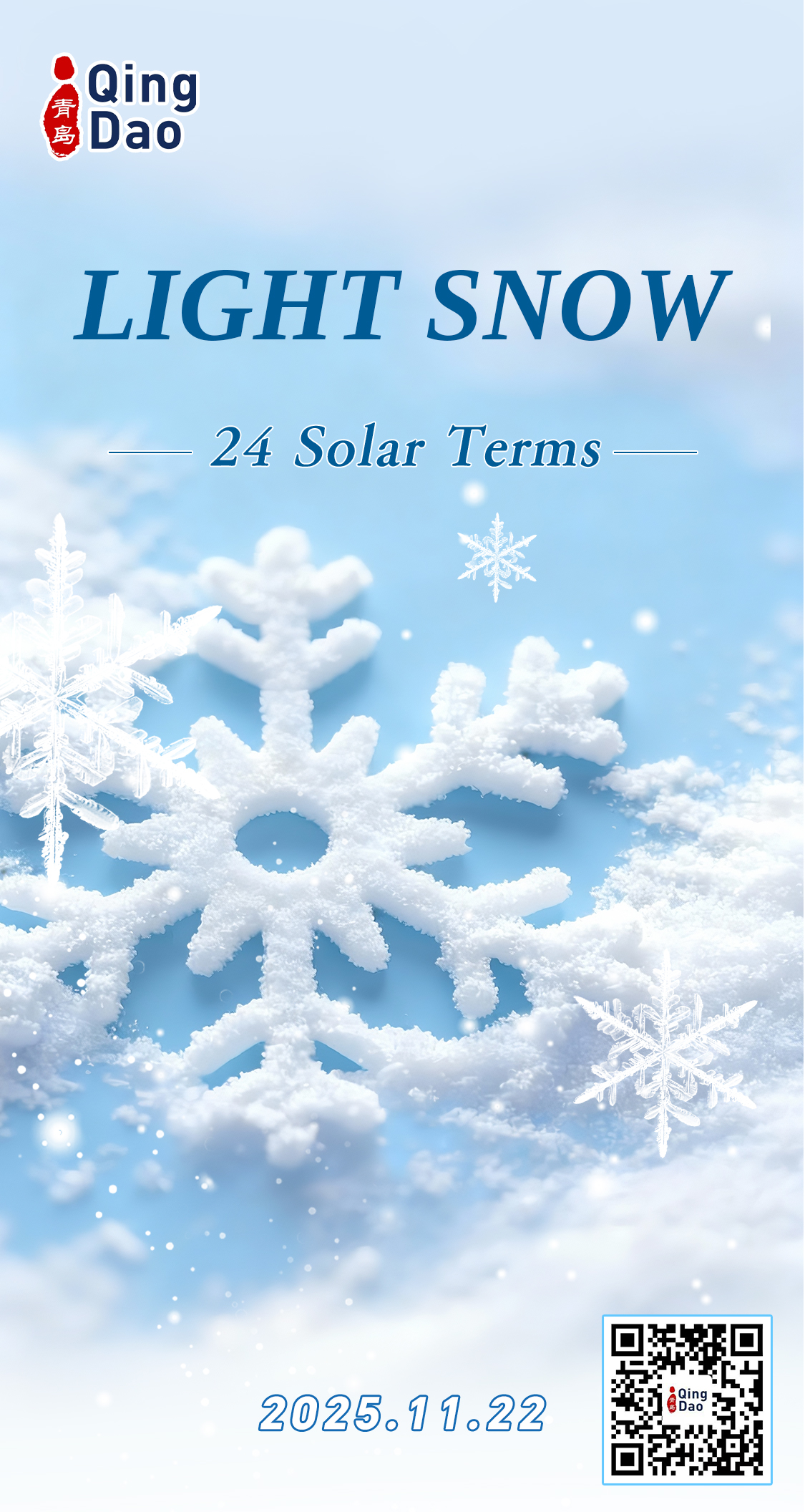Light Snow is the twentieth of the twenty-four solar terms, usually occurring on November 22nd or 23rd annually. By this time, temperatures in northern China gradually drop to freezing point, and precipitation shifts from rain to snow. However, as the ground is not yet extremely cold, the snowfall remains light, hence the name "Light Snow." This solar term marks the formal arrival of the cold winter, a period when nature enters a phase of dormancy and conservation. In agrarian society, Light Snow was crucial for storing the autumn harvest and implementing winter field management, requiring thorough preparations for the upcoming winter.

Historically, the Light Snow period gave rise to diverse folk customs. Practices such as "pickling winter vegetables" and "making cured meats" were widespread, leveraging the dry, cold climate to preserve food for winter—both a skillful adaptation to natural cycles and an expression of hopes for abundance. In some southern regions, eating "glutinous rice cakes" in the tenth lunar month symbolizes harvest and family reunion. Additionally, activities like "drying fish" and "storing winter grains" reflect the ancestral wisdom of preparing in advance and living in harmony with nature's rhythms.
Today, Light Snow endures as a vessel of cultural memory. While modern life has reduced the necessity of preserving food, traditions like making pickles and cured meats persist in many households, serving as a tangible link to the past. Urban residents may observe the solar term by savoring seasonal foods or noting weather changes. Its profound significance lies in reminding people to maintain connection with natural cycles amidst modern haste—adjusting lifestyles and mindsets accordingly while preparing physically and mentally for the harsh winter ahead. Acting as a cultural bridge between past and future, Light Snow continues to convey the ancient philosophy of harmony between humanity and nature, advocating a balanced and attuned way of living through the turning seasons.
By Yuan Ruichen/ Wang Wenchao




